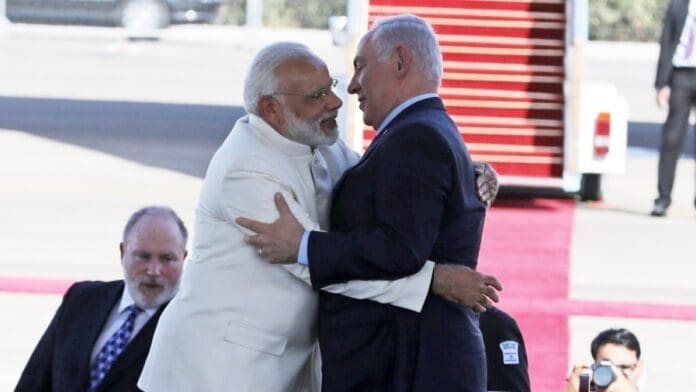Within hours of Hamas launching an attack on Israel, social media platforms were flooded with both support for Israel and fake news. What was particularly notable was the significant amount of content coming from accounts in India. These accounts, both large and small, have managed to tap into the wave of anti-Muslim sentiment and pro-Israel fervor that has been growing in the country. This shift can be attributed to the rise of Hindu nationalist ideologies, such as Hindutva, which consider Israel an ideal model due to its actions against Muslims.
India’s fascination with Israel has been on the rise over the past decade, partly due to its own security concerns. With ongoing conflicts and tensions with China and Pakistan, India has sought closer relations with Israel to strengthen its counterterrorism capabilities. This has led to a transformation in India’s political sphere, shifting from a pro-Palestine stance to one that is empathetic towards Israel.
India’s support for Palestine dates back to its independence in 1947, with the country being one of the first non-Arab nations to recognize the PLO as the legitimate representative of the Palestinians. However, in recent years, the relationship between India and Israel has grown closer, driven by factors such as trade, innovation, and security cooperation. Prime Minister Narendra Modi’s visit to Israel in 2017 marked a significant step in this evolving relationship.
Modi’s government has issued strong statements in support of Israel following the recent Hamas attack, indicating a shift towards a more one-sided stance. While India’s official position on Palestine remains unchanged, experts believe that Modi’s statements reveal a desire to appeal to his right-wing constituency and garner votes. This alignment with Israel also reflects ideological similarities between Hindu nationalists and Zionists, including a shared Islamophobia.
The tensions between pro-Israel and pro-Palestine sentiments have played out on social media platforms, with a significant ratio of support for Israel from Indian accounts. Hashtags such as “#IstandwithIsrael” have been widely used, demonstrating the growing admiration for Israel’s strong stance in dealing with its neighbors. The issues that bring Modi and Israeli Prime Minister Netanyahu together resonate with India’s Hindu nationalist constituency.
In conclusion, social media has become a platform to express and amplify India’s changing stance towards Israel and Palestine. The rise of Hindu nationalist ideologies and the government’s efforts to strengthen counterterrorism capabilities have influenced India’s evolving relationship with Israel. The prevalence of pro-Israel sentiment on social media reflects the growing fascination with Israel in India and the ideological affinity shared by right-wing factions in both countries.
